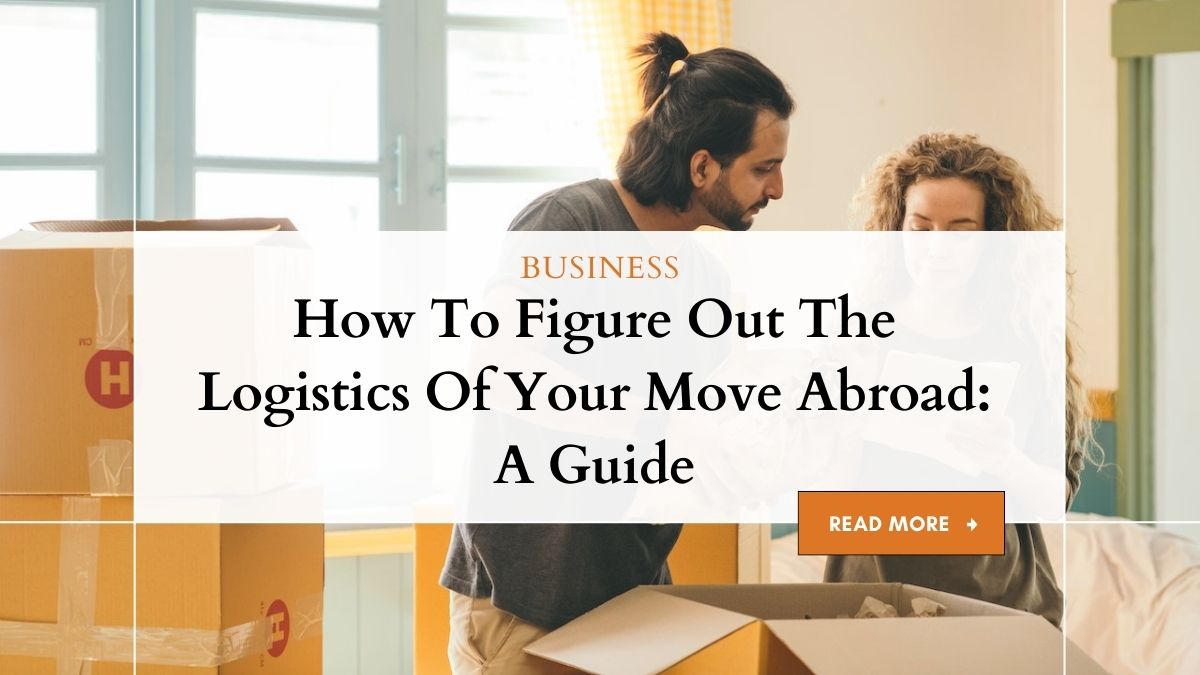
Are you ready to take the plunge and move abroad? You’re not alone – many people are eager to experience living in a new culture, learn a foreign language, and open up their life to new possibilities.
But before packing your bags there are some important logistics that need to be taken care of first.
From obtaining visas and finding housing to setting up bank accounts and learning about local customs; it can all seem overwhelming at first.
Here are some tips for making the process of moving abroad easier.
Also, you can able to know,
1. Transport Your Yacht
Before you move abroad, consider the logistics of transporting your yacht. Depending on where you’re moving to, it may be easier to leave it in storage or ship it directly rather than trying to move it yourself.
If you decide to ship, research different companies and compare prices before making a decision.
Don’t forget to factor in taxes and insurance costs as well. Additionally, international transport regulations may be different from country to country, so make sure you’re familiar with the law in the country you’re moving to.
It’s also important to keep in mind that some countries may not allow you to bring your yacht over, so double-check before making any plans.
2. Learn the Language
Moving abroad to a foreign country often means that you will need to learn the local language.
Not only is this an essential part of integrating into your new culture, but it can also be critical for finding work and navigating life in your new home.
There are a variety of ways to approach learning a language: self-study, online courses, group classes, and private tutors (both virtual and in-person).
Some governments even offer free or discounted classes for immigrants so make sure to check if there are any such options available in your destination country.
Additionally, don’t underestimate the power of simply speaking with people who already speak the language as much as possible – practice makes perfect!
3. Find Housing
Finding housing in a foreign country can be a challenging, yet rewarding experience.
Start by researching rental options in the area you’re moving to, and compare prices and amenities.
Consider if it is best to purchase furniture or rent an apartment that comes furnished, as well as other factors such as location, size of living space, and proximity to public transportation.
Additionally, look into short-term rental agreements if you are unsure about how long your stay will be.
As part of your research process, ask fellow ex-pats about their experiences with their various housing choices – this can help provide valuable insight into what works best for you.
4. Get a Local Bank Account
When you move to a different country, it’s important to have access to your funds. You can easily make this happen by opening a bank account in the new area.
This will allow you to pay for necessary items and services without having to worry about transferring money from one place to another.
To open an account, you’ll need certain documents such as your passport or driver’s license, proof of address, and other forms of identification.
Don’t forget that there may be different regulations in place when it comes to banking in various countries.
Make sure you familiarize yourself with all laws before trying to open a bank account abroad.
5. Set Up Healthcare Coverage
Once your move abroad is finalized, it’s important to make sure you have a plan for health coverage.
This should include researching the healthcare system of your destination country and understanding what type of insurance will be available.
Depending on the country, different levels of public and private health coverage may be offered.
Most employers provide some form of coverage or reimbursement for medical bills.
If this isn’t an option, then research to find a reliable provider with competitive rates that can cover any medical emergency during your stay in a foreign country.
6. Understand the Local Customs
Moving abroad is more than packing up your life and starting anew in a foreign country; it’s about living within the cultural norms of that place.
Before you move, make sure to research any local customs or traditions so that you don’t find yourself out of step while settling in.
Plus, understanding a new country’s cultural expectations will help you feel a part of the community much quicker.
For example, if you are moving to a society with strong religious values, knowing these values beforehand can help ensure an easier transition.
7. Make Connections
Making connections with individuals who live in the same city you are moving to can help make your transition smoother.
Before you arrive, research local ex-pat groups and organizations that you may be able to connect with once there.
It’s also a good idea to find out about any local activities or events you could attend in order to meet other people.
The more contacts and resources you have before arriving, the easier it will be for you to settle in and feel at home quickly.
8. Obtain Necessary Permits and Visas
Before you can start packing your bags, you’ll need to make sure that you have the necessary documentation and paperwork in order.
Depending on where you’re planning to move, this may include securing a visa or work permit to legally stay in the country of your choice.
For some countries, this process is relatively straightforward while for others it may be more complicated.
Make sure to research the requirements for your destination country ahead of time so that you don’t run into any surprises along the way.
Additionally, if there is any additional paperwork such as health registration forms or residency applications required for your specific situation it’s important to get those sorted out before leaving as well.
Don’t miss: Why Might Preparing Taxes Be Different for People Living in Different States?
The bottom line
Moving abroad can be a complicated and daunting task. By taking the time to research, plan, and prepare in advance you can make the process much smoother.
Don’t forget to find out about local customs and regulations so that you don’t find yourself out of step when settling into your new home.
Additionally, make sure to obtain all necessary paperwork and visas in order to legally stay in your destination country.














